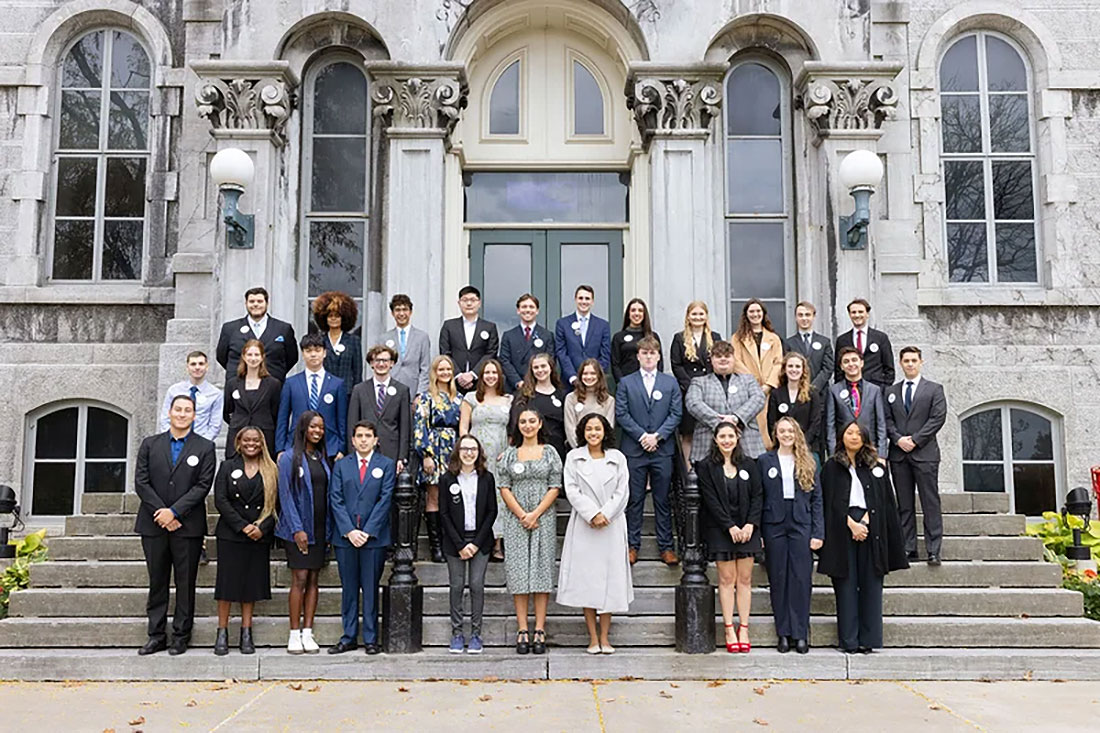
Sophie Creager-Roberts ’24 wasn’t born when the Pan Am Flight 103 bombing occurred on Dec. 21, 1988, but that hasn’t stopped her from learning about it. If anything, she has developed a unique perspective of the tragedy, in which 270 passengers, including 35 Syracuse University students, died over Lockerbie, Scotland.
Sophie Creager-Roberts ’24 wasn’t born when the Pan Am Flight 103 bombing occurred on Dec. 21, 1988, but that hasn’t stopped her from learning about it. If anything, she has developed a unique perspective of the tragedy, in which 270 passengers, including 35 Syracuse University students, died over Lockerbie, Scotland.
“My time at Syracuse has been shaped by my desire to understand how the present is indelibly linked to our reckoning with the past and all its complexities,” says the dual major in history and environment, sustainability and policy. “This eagerness is what inspired me to declare my academic majors and study abroad in Poland.”
It also motivated her to apply to become a 2023-24 Remembrance Scholar—a cohort of students charged with educating the campus community about the bombing, which is the United States’ second deadliest terrorist attack after 9/11.
We recently caught up with Creager-Roberts (SCR) and four other Remembrance Scholars to discuss the bombing’s 35th anniversary—Benjamin Johnson ’24 (BJ), an Air Force ROTC cadet majoring in computer engineering; Guerdyna Gelin ’24 (GG), a policy studies major; Lucio Maffei ’24 (LM), a dual major in ethics and political philosophy; and Emily Shuman ’24 (ES), a human development and family science major.
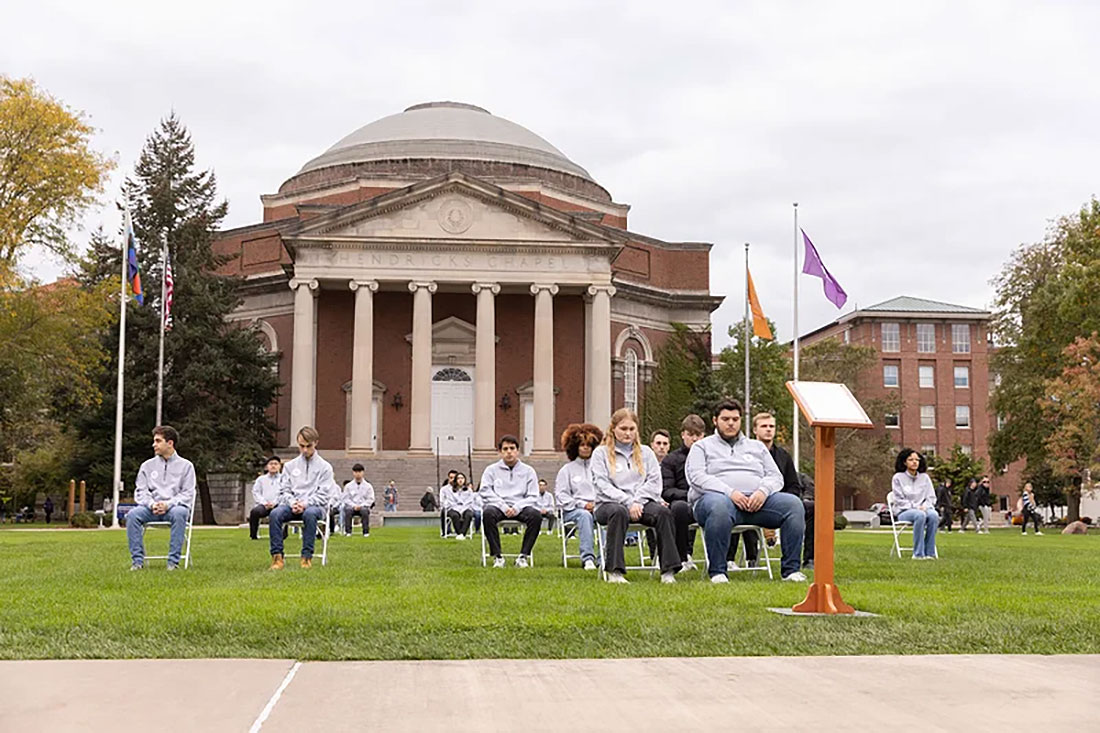
Why should we remember the events like the Pam Am Flight 103 bombing?
BJ: Doing so fosters unity and resilience. When we come together, we can help heal the emotional wounds surrounding such a tragedy. It reminds us that every life is precious, that we should work to protect the lives of others.
LM: We must learn from the past to act on the future. Having met the families and friends of many of the victims, I know that Remembrance Week and the Pan Am Flight 103 Memorial Service [which occur every October and December, respectively] mean a lot to them. These events help keep the victims’ memories alive.
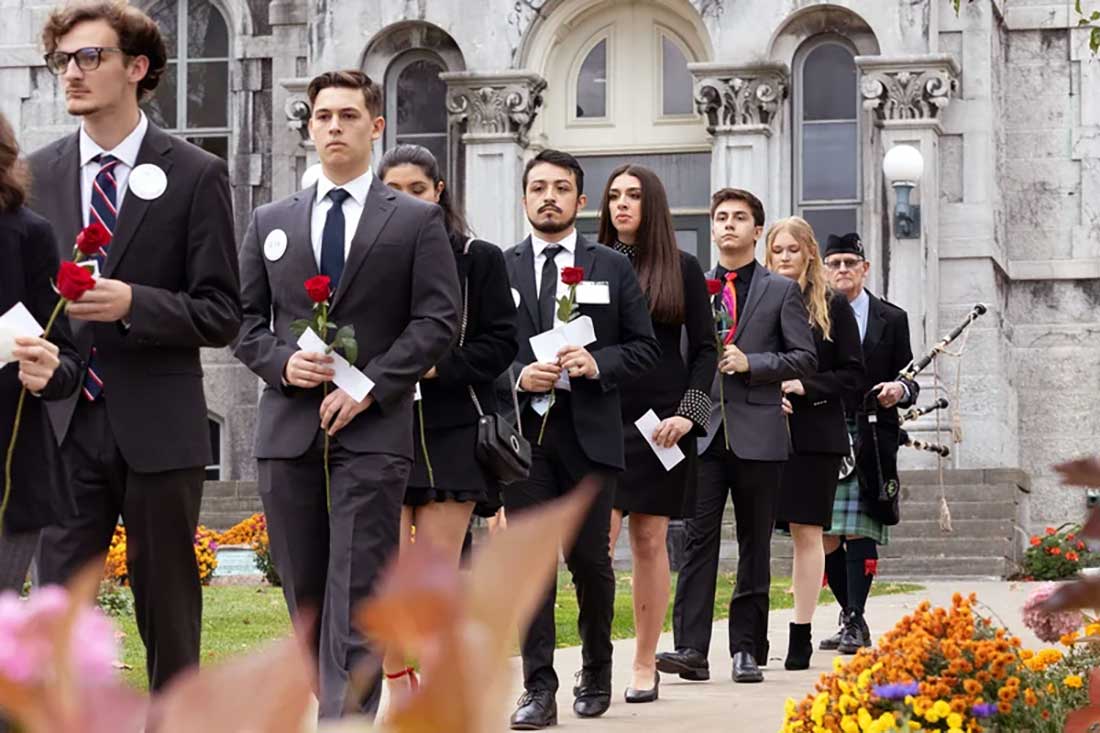
How do you educate others about it?
ES: I’ve gone to several classes and given presentations about the bombing—its history, the resources available in the Pan Am Flight 103/Lockerbie Air Disaster Archives and the different ways that students can pay tribute to the victims. Three other scholars and I have also talked at a chapter meeting of the Phi Delta Epsilon medical fraternity.
SCR: We’ve provided additional opportunities for healing and education through screenings of the documentary Seat 20D [which explores how a mother turned to art to cope with the loss of her son from the bombing] and artistic initiatives, like Remembrance Stone Painting on the Quad.
GG: I’ve been on several University social media channels, discussing the profound significance of Remembrance Week and the tragedy that it commemorates. Educating and engaging with the campus community in this way speaks to the powerful, far-reaching impact that social media wields among our generation. It’s heartwarming to see our message resonate with so many students.
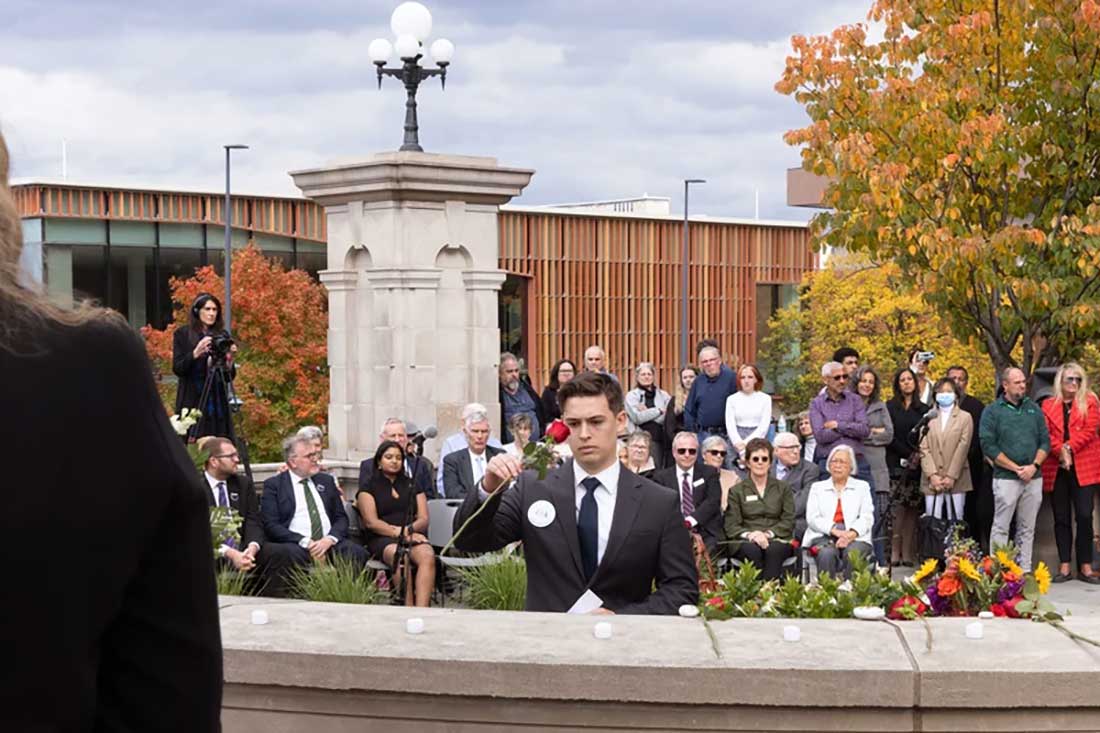
What have you gained from being a Remembrance Scholar?
LM: It’s been an emotional experience, whether I’m meeting with someone from the victim’s family or sitting in solidarity in the “Empty Seats Display” on the Quad. It’s difficult, but also enlightening. I have a greater awareness of the tragedy and a renewed respect for the victims’ loved ones and family members who continue to face overwhelming loss and grief.
ES: I’ve learned a lot about healing and empowerment. Just being in the Pan Am Flight 103 archives has shown me how to honor the memory of someone I’ve never met. It’s like gaining and losing a friend at the same time. Any one of us could have been on that plane. We must ensure that the victims aren’t forgotten.
GG: Interacting with members of our campus community about the tragedy has improved my leadership and communications skills. It’s also given me a stronger sense of purpose. Being a Remembrance Scholar is a transformative journey. I’ve experienced personal growth while promoting peace and preserving legacy, even in times of grief.
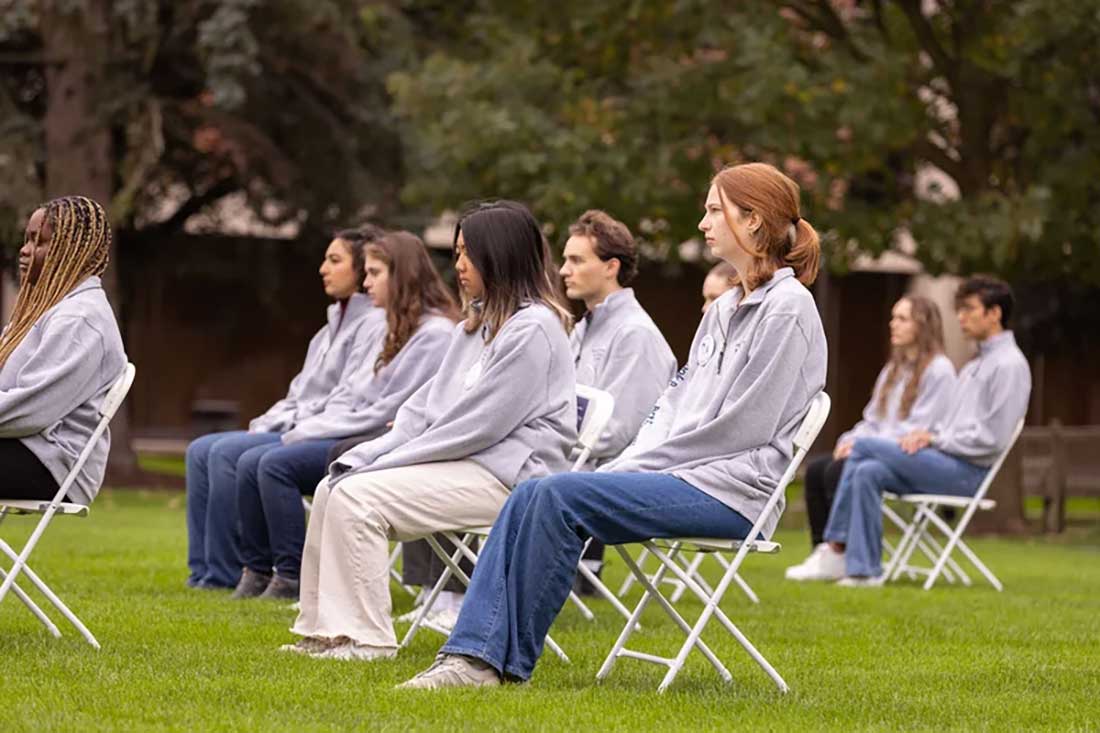
Why did you apply for the scholarship?
SCR: Carrying the victims’ memories forward is only part of reconciling with the past. It’s also an opportunity to fulfill the promise of remembrance by Chancellor Melvin A. Eggers [who, on the heels of the tragedy, established the Remembrance Scholarship program]. He said that the families’ “sons and daughters will be remembered at Syracuse University as long as any of us shall live and so long as the University shall stand.”
BJ: I applied so that I could surround myself with people who have the same passion and motivation as I for serving their community. In a few months, I’ll graduate from Syracuse as a second lieutenant and make an impact somewhere else in the world. I hope that as a Remembrance Scholar, I’ve been able to demonstrate how education and service can help strengthen the community and give people a sense of purpose.
An SU Story by Rob Enslin originally published on Dec. 12, 2023.
